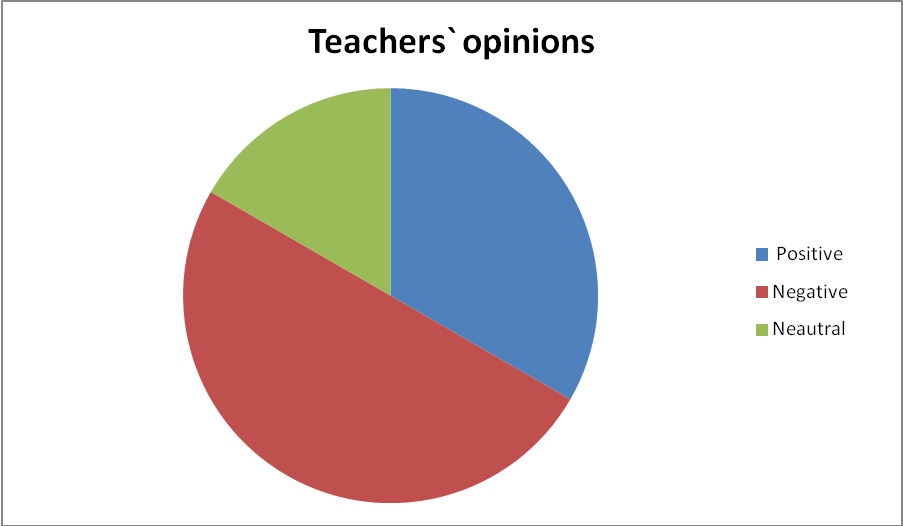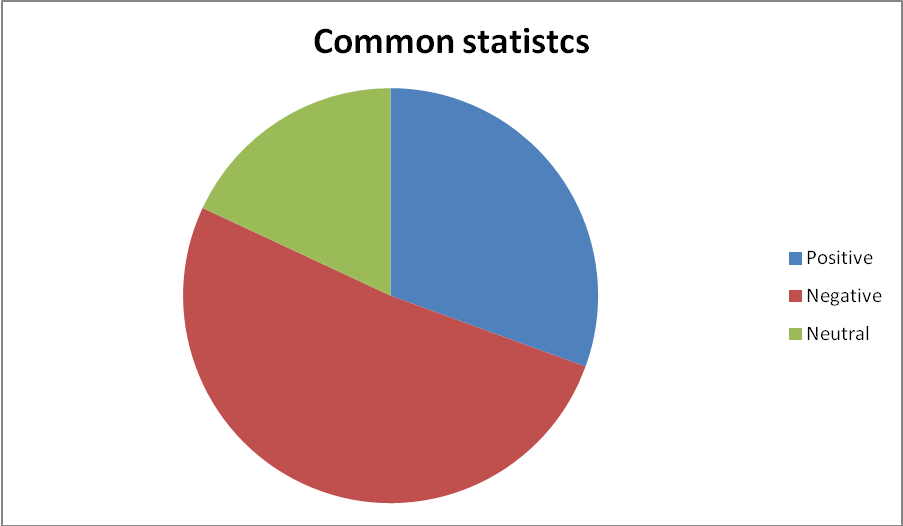- Преподавателю
- Иностранные языки
- Научно-исследовательская работа тема: Русские и Американцы глазами друг друга
Научно-исследовательская работа тема: Русские и Американцы глазами друг друга
| Раздел | Иностранные языки |
| Класс | - |
| Тип | Научные работы |
| Автор | Шалина А.К. |
| Дата | 31.01.2016 |
| Формат | doc |
| Изображения | Есть |
Introduction
Russia and the USA are one of the most powerful countries in the world. Relations between these two countries are far from the best way. Nowadays there are very complex political relations between Russia and the United States, but at the same time, these two countries are very dependent on each other. There is a difficult disagreement between Russia and the US as Russia began helping Iran and this conflict situation is continuing at the moment. But ordinary people who do not depend on the politicians want to visit the countries of each other, a lot of Russian students go to the US with the help of different summer programs such as "Work &Travel", and many people communicate on social networks.
The purpose of my work is the study of relations between Russia and the USA, as well as finds out what the Russians and Americans think about each other. This study is an attempt to figure out if the political situation influences opinions of people about each other. I formulated the research aims as follows:
•to identify as Russians and Americans relate to each other beyond politics
•to earn how our class, the teachers are Americans and the reasons for this relationship.
•to explore different forums and videos which show the attitude of these two people to each other
•to encourage if everything can be more positive towards the United States.
The subject of my research is facts and different video materials, as well as the views of the people of both countries.
The relevance of my work lies in the fact that Mass Media both in Russia and in the USA set people against each other, but we are all connected with each other, and it is a good attempt to learn about how the political situation affects people.
I. Political relations between Russia and America
1.1 The history of Russian-American relations
In 1809 Russia and the United States exchanged ambassadors, marking the beginning of diplomatic relations. The first U.S. Ambassador to Russia was John Quincy Adams, who later became the sixth President of the United States. The first Russian Ambassador in the USA was Andrey Dashkov. In the nineteenth century relationship between the U.S. and Russia were generally friendly, despite the problems that arose in the beginning of the century as a result of collision of Russian and American interests in the area of Alaska and the Pacific coast of North America.
On 17 April 1824 in St. Petersburg the Russian-American Convention on friendly relations was signed, Commerce, navigation and fishing, streamlined relations between the two States in the North-Western part of North America. It was during the negotiations that preceded its signing, in the summer of 1823 until the Russian government was informed of the U.S. intention to nominate as a principle of its foreign policy the thesis of "America for the Americans".
In 1867, Russia sold Alaska, the entire Aleutian archipelago and some Islands in the Pacific Ocean to America.
In 1880, the U.S. Congress adopted series of decisions condemning the policy of Alexander III in the Jewish question.
As it was noted by the Russian researcher A. A. Rodionov, . A. A. Rodionov characterized position of American society in relation to Russian political regime in the first half of the 1880s as mild criticism of tsarist authoritarianism. In the late 1880s - early 1890s there was a small but very active opposition to the tsarist regime in American society, which represented a small group of Russian political emigrants, American journalists, public and political figures, staged a campaign in support of the "Russian freedom", which had a significant influence on the formation of Russia's image. The researcher said that under the influence of this campaign many Americans began to understand the relationship between the U.S. and Russia from the perspective of the conflict between civilization and barbarism, in public opinion of the USA there was a shift that would eventually lead to American society of Russophobe sentiment and belief in a "Messianic role" of the U.S. - that the U.S. intended to carry out the mission of liberation and to interfere in affairs of other countries and peoples. Moderate critics of the political regime of Russia and U.S. are converted to its active condemnation.
Determining factors that affected U.S.-Russian relations at the turn of XIX and XX centuries, became hostile stance of the administration of U.S. President Theodore Roosevelt and the American media in relation to Russia, especially during the Russo-Japanese war, the clash of economic interests in the far East and Manchuria, as well as friction's "Jewish question" related to the restriction of Jewish rights in Russia and active emigration of the Russian Jews in the United States.
Since 1901, the administration of Theodore Roosevelt provided financial and military assistance of Japan as the main opponent of Russia in the Far East (during the Russo - Japanese military conflict).
The United States became one of the last states which recognized the Soviet Union. The first Ambassador of the USSR to the USA in 1933 was Alexander Troyanovsky. Diplomatic relations between the Soviet Union and the United States were established on 16 November 1933. During the Second World War relations between the USA and the USSR remained moderately good. The German attack on 22 June 1941 the Soviet Union caused among the American people a wave of respect and sympathy to the Soviet Union. Roosevelt's decision from November 1941 the USSR was distributed by the law on lend-lease, under which the USSR began to ship U.S. military equipment, property and food. But the Union Treaty between the USSR and the USA (as between the USSR and Britain) was not signed.
An important factor in relations between the Soviet Union and the USA became the arms race. Since August 1945 the United States considered itself a monopoly on the possession of nuclear weapons and tried to use this trump card against the Soviet Union. But in 1949 the Soviet Union also got atomic, and in 1953 - a thermonuclear weapon, and then the means to deliver these weapons to targets on the territory of his potential opponent (ballistic missiles). Both countries have invested huge sums in military industry; the total nuclear arsenal for decades grew so much that it was enough to destroy the entire population of the planet dozens of times. The beginning of the Cold War was at that time.
In the early 1960s the United States and the Soviet Union were on the brink of nuclear war when the USSR in answer to the deployment in Turkey of American medium-range missiles placed their own nuclear missiles in Cuba that led to the Caribbean crisis of 1962. Fortunately, thanks to the political will of leaders of both countries, John F. Kennedy and Nikita Khrushchev, the military conflict was avoided. On 1 June 1990 an agreement was signed between the USSR and the USA about the line of delimitation of Maritime spaces. 1 February 1992 as Camp David was proclaimed a joint Declaration of Russia and the USA, which officially marked the end of the Cold war.
1.2 Russian-American relations now.
In 2003 Russia together with France and Germany actually headed "camps disagree" with the actions of the USA against Iraq. The main problematic issues between Russia and the US are Russian help to Iran in pursuing its nuclear program, energy security, and the situation in Georgia, Ukraine and Palestine, as well as the United States deployed in Europe missile defense system.
In the beginning of 2007 the conflict over the U.S. plans to deploy in Poland and the Czech Republic elements of its missile defense system inflamed with new force between the US and Russia. According to the U.S. administration, the move is aimed at protecting Europe from Iranian and North Korean missiles. The Russian leadership categorically rejects this explanation. On 8 February 2007 the minister of defense of the USA Robert Gates declared that "the United States should be prepared for a possible armed conflict with Russia". In 2013, as well as the disagreements between Russia and the USA highlighted the situation in Syria and the DPRK, missile defense and non-profit organizations in Russia. In June 2015, the degree of tension between countries increased in connection with U.S. plans to place in Eastern Europe tanks, armored personnel carriers, rocket artillery and other heavy weapons. Russia called the move "the most aggressive step since the cold war."
At the moment there are the strained relations between Russia and the United States and the tightening of sanctions in connection with the crisis in Ukraine. Ukraine for the USA is initially favorable geopolitical object and area of counteraction with Russia. Relations between Russia and the USA, which directly affects not only the situation in Ukraine, but all over the world, at the moment it is difficult to say whether it will be possible to come to a peaceful dialogue between these two powers. Judging by the recent visit of Secretary of the US Kerry in Sochi, positive trends in the development of the conflict are planned at least a desire for it, but the reconciliation cannot be called unique for a long time.
Because of the complexity and vastness of the topic, the political, military and economic power of Russia and the USA, and most importantly the many scenarios between two states, it is important to emphasize the undeniable fact that the main priority is the achievement of a truce and the implementation of all Minsk agreements.
II. Americans and Russians` Thoughts about Each Other
2.1 The Russians speak about the Americans
The Americans also present the problem of excess weight from Russian perspective: «women living a regular life and fictional emotions combating overweight, eating all the burgers, not the measure from overeating and lack of exercise. They often need a therapist not only because they have problems, and due to the fact that they "need to have". Kind, funny" (says the young man). "The woman always something missing" (says the young man). "Narcissistic dissolved, neurotic, stupid, but all seeking their benefits" (another boy).
"Devoid of worldly wisdom. Fake. Always hungry, but their mind down all sorts of diets" (W, 18-29)
It should be noted that the insincerity of American women is less than that of American men, perhaps even in only one response: "Sociable, friendly, closed"
Career is a priority for American women very often: "Obsessed with career, believes that the main thing in life - a career and a child, your relationships with other non-permanent (says the boy).»Ready to sacrifice his family for career (unlike the Russian woman)" (female, 18-29 years)
Many comments felt the desire to build a stereotype of American women on the contrary, as opposed to a Russian woman. "The woman without age, the beauty of which we do not yet manifested itself, or has already left," (says the boy).
Russians about a typical American male:
"A fat man in a hat and with a cigar"(says the man). The cigar is very frequent attribute of the external appearance, along with a cap-a baseball cap.
In General, often (especially in the group of 18-29 years) is prevalent condescending attitude towards "gringos".
"Weak-spirited people focused on common stereotypes and family (graft) value. At the same time loosely connected to the family and appreciate family and friendship ties" (says the young man). This resonates: "blinkered propaganda, Ura-patriot" (writes the man, 30-39 years old). "Trustful, but cunning at the same time" (says the man). Independent, sincere, tireless, but with low intelligence (says the woman).
Insincerity, hypocrisy are suggested very often in the American. "Stupid, dishonest, feigned, unnatural, working for the audience, his mind," says the woman. "His mind, neither fish nor fowl, best of all, in his opinion" (woman, 60+). The same, but is expressed more neutrally: "a Pragmatic, values decency" (well, 40-49 years).
"An ambitious careerist, thick with cigar in his mouth and a stupid question "how are you?"
In General, overweight, if you rely on the opinion of Russians, the same problem of the typical American male, as the propensity to alcoholism in Russians.
Another typical feature: lack of education, narrow outlook." Little-educated and rude,- the woman writes. -Read too little, not interested in anything beyond their noses "(female, 50-59). A softer version: "specialization can all be proud of what you have achieved, even if it is a high school diploma" (man, 50-59 years).
Even if dignity is recognized ("Patriotic, able to think critically"), with reservations: "thinking narrowly, only within their community, arrogant, sense of superiority".
"Patriotism" is called very often! "The naïve believes that USA is the best country in the world." "They believe in the American dream, the proud, appreciates his freedom and independence."
The feeling of superiority the Americans find too often. "Greedy, ambitious, patriot, who loves to eat well and entertain" (says woman). I am sure that his nation is the best in the world (man, 50-59 years).
Very often marked business acumen ("business man, prudent", can calculate time and money, decisive, businesslike). The main goal is to make money (very often!) Accordingly, many stereotypes contain professional features (which was not the case in representations of Russians about yourself): Farmer or businessman. Kommersant.
Sometimes it occurs entirely positive stereotype: good-Natured, cheerful, friendly. Smiling, enterprising, active. Brisk, energetic, able to earn, sociable, cheerful, clever (says the woman).
2.2 The Americans speak about the Russians
As I want my research to be complete I looked through articles in which I could learn what Americans think about us.
Americans believe that Russian women are very beautiful. If you offer to describe a Russian girl, then it is usually a white-faced, black-browed and ruddy "pumpernickel", very neat, always tinted (I mean, when you make up), good, well dressed. She is very hardworking, cooks really well (this stereotype is especially popular between Americans). According to them, a Russian woman cooks with bold, richly and much. As for Russian men, they are very rich (the opinion was born during the perestroika years, when America became acquainted with "new Russians"), very strong, physically healthy and, of course, all alcoholics.
Russian food. Americans know a very limited amount of Russian dishes. But what is "borsch", I heard the most. Perhaps this is the most popular Russian dish in America. Not even the dish itself but the name, which Americans associate with Russian cuisine. Caviar, pancakes, jelly, and dumplings are also known. The Americans themselves eat that kind of food which is treated with caution, although there are Russian restaurants in America, of course. But such meals are not entirely clear. Pie heard too. If someone had a chance to try this delicacy, you probably formed an opinion about cool Russian cooks. As for vodka - it is, according to the Americans, all Russians drink, and much. The Americans know feasts . They feel that Russian parties are noisy, shouting, singing and swearing.
Russian rules. Americans believe that Russians don't like rules and ignore the laws. They might be right.
Russian living conditions. They are funny, but for Americans the word "Siberia" is essentially the same as "Russia". Some Americans who had already visited Russia and even walked on red Square still believe that if in Moscow they met a bear, then certainly in the province for sure it is real. The winter is extreme cold and it is also not discussed.
Russian smile. It's this phenomenon of Americans face infrequently. They generally believe that Russian people are very sad, much closed and still reeling from the events of those times, when they "got" from the Communists. Most likely, this stereotype developed as the Americans themselves are quite smiling. Maybe sometimes their smiles and feigned, however, this habit is produced in them from childhood, that cannot be said about the Russians.
They can also make 48 facts about Russia and Russians through the eyes of Americans:
1. Russians distrust everything cheap.
2. The English word bargain is not susceptible of adequate translation into Russian language, because the concept of quality products (or services) sale cheap, alien to the Russian man in the street.
3. A freebie is a different matter. The fact of receiving an elite product for free does not diminish its exclusivity.
4. The Russian, who managed to climb on top of the socio - political hierarchy, consider it necessary to nuzzle all of you who have not reached this exalted status.
5. It's not enough just to go for a luxury car one must purchase and constantly on the lights and honk the horn so that you give way - in short, that your elitism is not anyone's attention was slipping.
6. In Russia you need to call the lazy waitresses emphatically demanding: "the Girl!"
7. It is impossible to survive in the Moscow metro without the skill of pushing apart by elbows people.
8. Typical Russian feature are the kitchen late gatherings and conversations "for life".
9. Russians usually avoid talking about work, while for Americans, this is the main theme.
10. The Japanese consider Russians the dacha is like a huge luxury at home they can only dream of. And what can we say about the elite house in Moscow and in St. Petersburg, many of them foreigners seem to be just out of this world for its fantastic luxury and Jumbo sizes.
11. In Russia during any reception, guests immediately are of the same gender.
12. In Russia you most likely shocking huge numbers of police patrolling the streets.
13. The Russians never throw. Never. Nothing.
14. However, if imperceptibly to throw out half the stuff - Russian will not notice anything.
15. Unknown Russian is likely to turn to you in proletarski familiarly, "man" or "woman".
16. "Sorry to call you" turning to Russia is only spoken by beggars in transport.
17. Be prepared for the fact that in some important Russian friend request, never say "please" and "thanks in advance".
18. In Russia any question or problem can be solved "on the pull", arrangement.
19. Russian saying "impudence - the second happiness" cannot be adequately translated into another language. Just do not understand.
20. Russians drink lots of vodka. And it's not a myth.
21. In fact, in Russia you cannot be afraid for his life, walking through the streets. Seriously.
22. Unbearable cold in Russia - is a myth. Although a third of Russia located beyond the Arctic circle, all major cities are in a temperate climate.
23. Russian men are convinced that feminism has led to the collapse of America and Europe and that the historical mission of Russia is to resist him.
24. Russians sincerely believe that Americans think that in Russia bears walk the streets. However, this myth about the bear - a purely Russian invention. In Moscow you can even buy a t-shirt that says in English: "I was in Russia. There are no bears." By purchasing a t-shirt, Russian will think he made a very Patriotic statement. But to a foreigner it will be simply incomprehensible.
25. Russians don't understand when someone from the West comes to Russia for permanent residence. They believe that on the contrary, to leave.
26. When you come to the dentist in Russia, you immediately ask, "Where does it hurt?" Hearing that nothing hurts, you just came for a routine inspection of the teeth that you do every six months, the doctors are very surprised.
27. Brushing teeth, flossing, professional cleaning - the Russians refer to these rituals without fanaticism.
28. They also allow yourself the weakness of that cult American dentistry refers to mortal sins, such as drinking tea with centimeter layer of sugar at the bottom of the Cup.
29. Most Russians, from young children to pensioners, abusing the emoticons. And very few can do at all without them.
30. The Russians want to be European nation, after all, the belief that everything European is by definition the best Russian and cannot be eradicated.
31. The Moscow metro is the best in the world. Better new York and London. Trains run every 1.5 minutes at rush hour! Tickets for less than a dollar, and there is no division into zones!
32. Thus, there is a whole class of people who never out of principle will not go to subway, even if you are late for an important business meeting. They will languish in hours-long traffic jam in their luxury car.
33. In fact, to come to live in Russia, or need to love this country or be a total failure, which cannot realize itself at home and wants to enjoy the honor, which foreigners from "capitalist countries" are still used in Russia.
34. As soon as someone from the Russian appears a little bit a reason to celebrate something - be it a birthday or a promotion, they immediately bring treats to all my colleagues (candy, chocolates, cakes and sometimes even bottles of wine). Americans, this tradition seems strange - usually the hero of the occasion awaiting gifts from colleagues. And in Russia all on the contrary. Here we need to be generous, to demonstrate the breadth of the Russian soul.
35. "Stove" is one of those words, to understand the meaning of which can only be if you live in Russia, and in the village and in winter. When the outside is minus 30, and the stove is the only thing that prevents the temperature in your house to drop to the same temperature. On the classic Russian stove you can cook and sleep.
36. In Russia is very suspicious of people who speak other languages in a confined space.
37. Alcohol and drunkenness are part of Russian culture and literature.
38. Non-drinking Russian is off the fact. Most likely such a person with alcohol involves some kind of tragedy or stress.
39. Do not be surprised if the New Year celebration in Russia you will be invited to 11:30 PM to 6 am, you will consume cognac, champagne, herring under a fur coat, salad Olivier and Julien, then you will be put to bed and the holiday will be celebrated in the apartment for three days.
40. Russians don't use blinds at home, and the curtains are rarely dense enough to block out direct sunlight.
41. In Russia there is no culture of sobriety, the only non-alcoholic establishments are foreign fast food restaurants such as McDonalds and KFC.
42. Russians love to hang rugs on the walls.
43. Resucitate to smile constantly, while you are in Russia, especially to strangers. "Phony, insincere" American smile infuriates the Russians.
44. Borsch, stuffed cabbage and dumplings - not really authentic Russian and Ukrainian.
45. In Russia there is no tradition to send the aged parents to the nursing home and kick their children after adulthood. All live in the same apartment.
46. Despite the traffic jams and the wretchedness of the roads, the Russians buy their huge gas-guzzling cars.
47. Russia is the only country, except Japan where they eat sushi. Sushi has almost become part of the national cuisine.
48. Russians are very hospitable and readily welcome into your home. You are likely to drink black tea and fed a high-fat meal (such as boiled or smoked sausage).
2.3 The Analysis of the Opinions
I decided to ask teachers and students of my school what they think about the USA and its people. I asked the questions: "What do you think about the United States and residents of this country", "how do you feel about the Americans: negative, positive or neutral?" (Annex 1) the majority relates to Americans negatively, it gives me to assume that media affect us. I represent the views of individual teachers:
History teacher Luybov Mishanova V.: " I'm negative. Such a nation as America basically does not exist. The American nation consists of the English and the Australians who came here to live. There are many Russian people there, too. Many people who have achieved something in America came here from other countries ".
English teacher Kurnavina Maria A.: " Americans have a very high opinion of themselves, there are a lot of uneducated people. But they know very well their rights, that cannot be said about Russians. Americans don't look after themselves and after their meals. There are addiction thrives more than in Russia. Few Americans learn in their famous universities, such as Harvard, but a lot of students from other countries do. I am neutral for them".
I was wondering, what the students from 9 school in classes with advanced study of English language think and here there is the opinion of one female student:
Student 9 school of translation class Karina Alukaeva:
" I do not know any Americans but I believe that these are people from the consumer society, people buy many unnecessary things, eat lots of fast food. But overall, I believe that Americans are good people and want good for us, despite the political relations of our countries".
Many Russian people go to live in America and they can see this country from the inside and not just on TV, and it would be wrong of me not to know the opinion of Russian people who live there, we asked Nina Gorbunova and her opinion about the American people and that's what it is:
" As in any other country there are a huge number of different types of people, so we cannot say that this nation is stupid and thick. First, Americans are very polite; if someone will come to you on foot, make sure you apologize. Secondly they are punctual, efficient and value their time and their efforts. Thirdly they are respectful to other cultures. In General Russians the Americans have a lot to learn. "
Watching the video where Americans say about Russians I can say they treat us well. We also managed to ask one of the Americans: "What do you think about Russians?"
Angel de La Cruz:
"When the Americans ask the Russians, they never draw a parallel with the political situation. The first thing they remember, it is their harshness and stunning kitchen. In New York cuisine is particularly popular. Pancakes, pies and soup -Americans go crazy for this food! They have great respect for Russian culture, realizing how deeply they are rooted in history. For example, what seems routine for us - samovars, handmade coasters, painted pottery, hand-bound scarves - all of it enthralls them, because needlework is valued very highly, and craftsmen who know how to, here its weight in gold.
Overall I can say that the Russians have a good reputation. Yes, we think about them, which is quite original, closed and conservative, communicate mostly with "her", but there is nothing wrong. Everyone understands that historically. However, because of the jokes that go around about Russian men, who always in his bosom a Kalashnikov rifle, Russian with strangers I try not to get involved and especially not to interfere, because you never know) People severe."
Conclusion
Asking Americans who were in Russia and the Russians, who were in America, I came to this conclusion:
When such people ask about another nation, they never draw a parallel with the political situation. They know that these nations are amazing and treat them positively and with respect, they say that we can learn from each other.
Those Russians who were not in America are mainly negative. But most Americans do not think about Russia badly, moreover they believe that our nation is cool. Unfortunately, the political relations and the media push people away from visiting Russia and the USA.
The list of literature
-
Болховитинов Н.Н. Россия и война США за независимость. 1775-1783 / Н.Н. Болховитинов.- М.: Мысль, 1976.- 272 с.
-
Болховитинов Н.Н. Россия открывает Америку. 1732-1799 / Н.Н. Болховитинов.- М.: Междунар. отношения, 1991.- 304 с.- (К 500-летию открытия Америки).
-
Болховитинов Н.Н. Русско-американские отношения. 1815-1832 / Н.Н. Болховитинов.- М.: Междунар. отношения, 1975.- 421 с.
-
Болховитинов Н.Н. Становление русско-американских отношений. 1775-1815 / Н.Н. Болховитинов.- М.: Междунар. отношения, 1966.- 571 с.
-
Давыдов А.Ю. Российско-американская торговля: состояние, проблемы, перспективы(электронный ресурс) / А.Ю. Давыдов // httm/rusus/ru.
-
Коновалов А.Б. Как Россия и США потеряли друг друга / А.Б. Коновалов // Мировая экономика и международные отношения. - 2000 − №7. - С.3-15.
-
Потенциал торговых отношений между Россией и США огромен. − interfax.ru /print.asp?sec=1483&id=105559.
-
Соловьев Э.Г. Интернет: Русско-американские отношения осени 2008 года: эл-ный журнал / Э.Г. Соловьев. − zlev.ru.
-
Соловьёв Э. Перезагрузка российско-американских отношений (электронный ресурс)/Э. Соловьёв//perspektivy.info
-
Россия и США: становление отношений. 1765-1815 / Сост. И.Н. Башкина, Н.Н. Болховитинов, Дж.Х. Браун, И.И. Кудрявцев, Н.Б. Кузнецова, Р.Д. Лаида, В.Н. Пономарёв, Ч.С. Сэмпсон, Н.В. Ушакова, Дж.Д. Хартгроув, Б.М. Шпотов.- М.: Наука, 1980.- 752 с.
-
zagranicey.ru - Наши за границей
-
dic.academic.ru/dic.nsf/ruwiki − Русские в США
Российско-американский бизнес-саммит. − rlp.ru.
-
Русские для американцев - в шелухе мифов //Русский Журнал
-
jaa.su/chto-dumayut-amerikantsyi-o-russkih/
-
smitnews.ru/2011/12/15/50-faktov-o-rossii-i-russkix-glazami-amerikancev/
-
rusfact.ru/node/7389
Annex 1

We have conducted surveys among pupils 7 - 9 classes in our school:
All this was attended by 144 people.
Question: How do you feel about America?



As we can see in all classes a negative attitude prevails towards this nation - the most in 7 grades.
Now look at the overall statistics:

21


